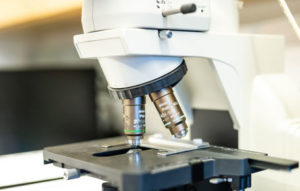Research
 The Cell and Molecular Biology faculty at the University of Virginia provides a comprehensive graduate training program in modern cell and molecular biological sciences. It is the purpose of the program to provide the widest possible choice of mentors, and hence, research areas, while offering an individually-tailored academic program for each graduate student. We believe that the best biological scientists are those who possess a broad knowledge of cell and molecular biology, as well as a thorough understanding of their own particular research area.
The Cell and Molecular Biology faculty at the University of Virginia provides a comprehensive graduate training program in modern cell and molecular biological sciences. It is the purpose of the program to provide the widest possible choice of mentors, and hence, research areas, while offering an individually-tailored academic program for each graduate student. We believe that the best biological scientists are those who possess a broad knowledge of cell and molecular biology, as well as a thorough understanding of their own particular research area.
Cell Structure and Function
Research in cell structure and function seeks to determine mechanisms by which parts of cells undergo change and interact with one another in carrying out basic cellular functions. The field encompasses cell morphology, physiology, biochemistry, and molecular biology.
Developmental Biology
There have been dramatic advances in recent years in our understanding of problems in developmental biology. Many questions in this discipline were formulated decades ago, but have been intractable because of the lack of adequate methods to study them.
Gene Structure and Expression
Within the past decade, there has been remarkable progress in our understanding of the structure of genes, the mechanism of their expression, and the identification of factors regulating this expression in response to environmental or developmental signals.
Immunology, Virology and Molecular Pathogenesis
Remarkable progress has been made in recent years in understanding the properties of infectious agents such as bacterial pathogens, viruses, and protozoa, which allow these organisms to cause disease.
Macromolecular Structure and Interactions
A detailed knowledge of the synthesis, structure, function and interactions of macromolecules is a necessity for the full understanding of cellular processes. Numerous researchers at the University of Virginia are involved in state-of-the-art research in these areas.
Membrane Structure and Function
Biological membranes are the site of many molecular systems that give rise to a variety of physiologically important functions. Among these functions are nutrient and ion transport, oxidative and photosynthetic phosphorylation, signal transduction, and electrical excitability
Signal Transduction
Some of the most exciting findings of the past decade have deciphered processes involved in biological signal transduction. These are processes by which cells communicate among themselves.
